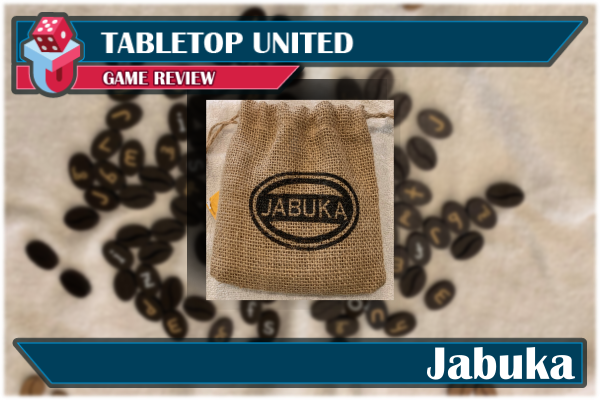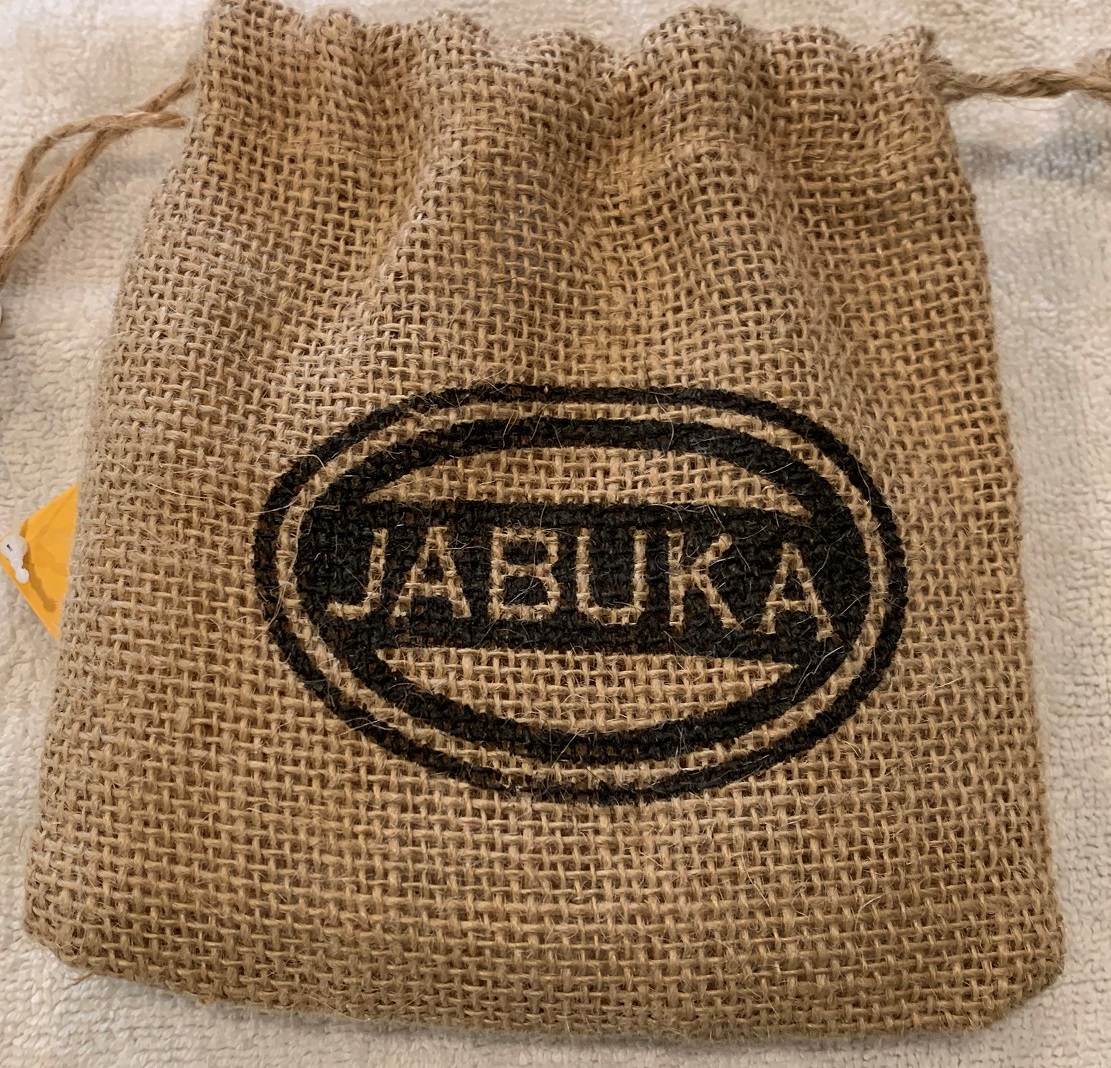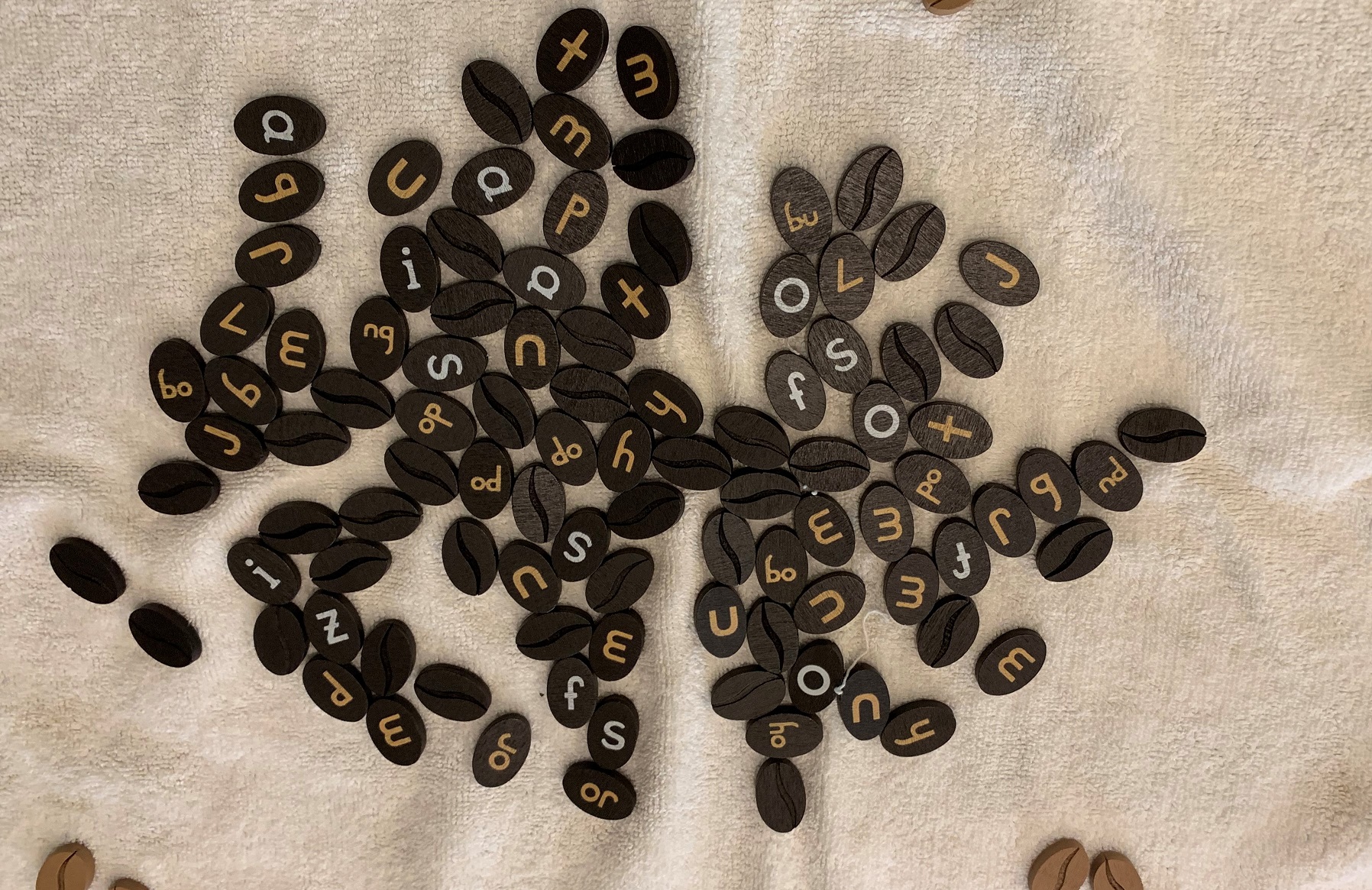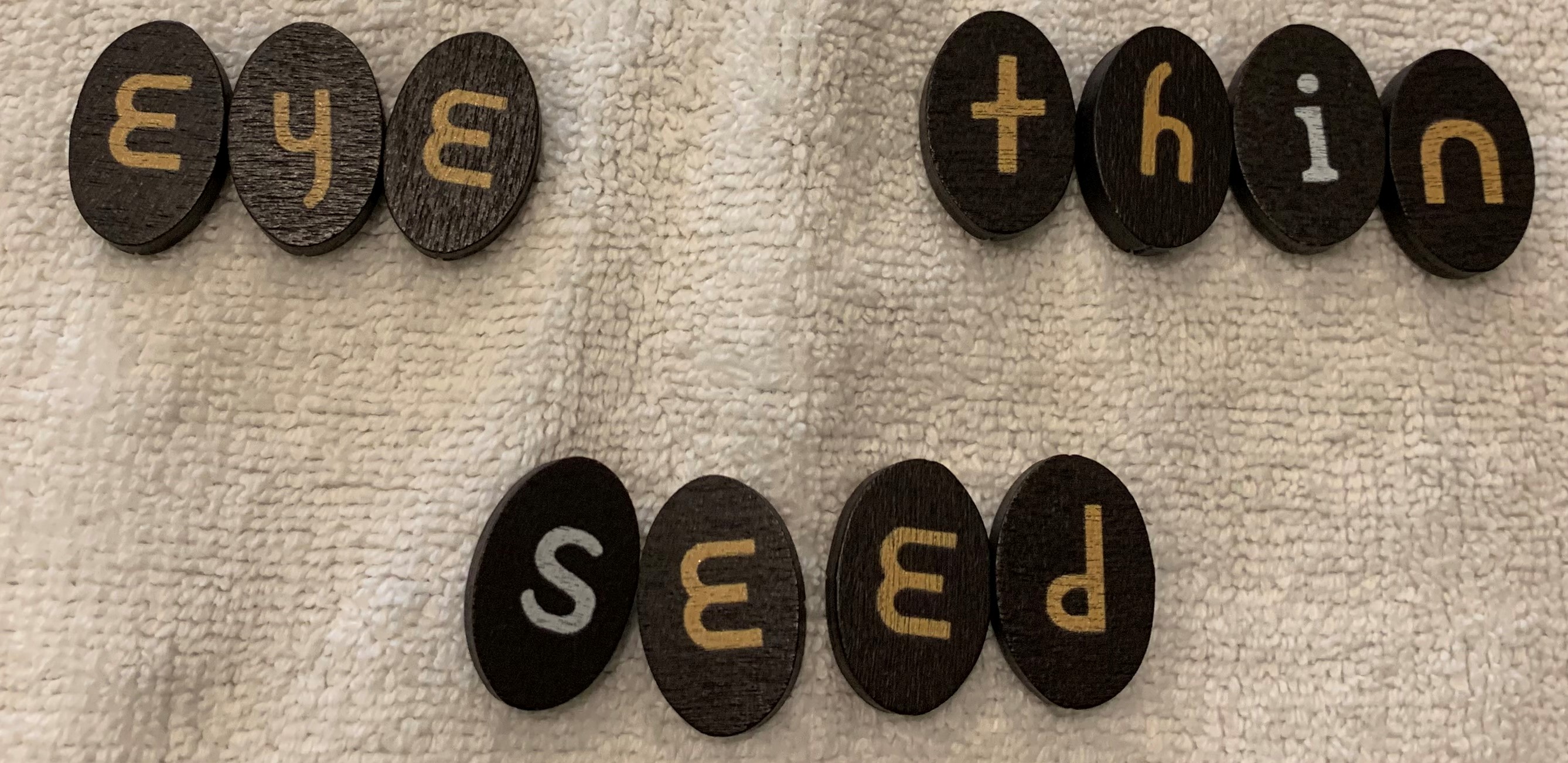Jabuka Review
Designer: Martin Russocki
Artist: Martin Russocki
Publisher: Jabuka Games Inc.
Year Published: 2019
No. of Players: 2–8
Ages: 8+
Playing Time: 15–30 Minutes
Main mechanic / Theme: Words, Education, Simultaneous Action
Creating words with coffee beans is something many writers do, now you can too.
Find more info on BoardGameGeek.com (link)
Overview:
Jabuka is a fast-paced word game. What creates the speed of play is everyone uses the same tiles, or beans, to make their words without taking turns. You can also build and change words others have already created.
The tiles are coffee beans. On each one is a letter or a combination of letters. Some are printed in yellow, and those beans can be twisted in different directions to change the letter to another one. For example, the same bean could be a “c,” “n,” or “u” depending how you twist it into the word you want to make. The other beans are printed in white and can’t be twisted.
You are not only pulling the beans from the center pot, but you can also take the words other players have created by changing it into another word. This can be done by twisting the yellow beans and adding new beans to the word. You have to use everything in the existing word, and you can just change it back to a word it was earlier in the game.
Three of us sat down to play Jabuka. We had a riot once we got into using other people’s words and had fun. It was a little slower start for my opponents because they had played other word games, like Scrabble, and they were trying to mimic the game they knew. Once they got into the play, they had fun.
The ability of twisting letters and racing to create words gave Jabuka a unique feel when compared to other word creation games. While we played, I thought about not only Scrabble, but Boggle, Quiddler, and Paperback. Players who enjoy these games will have fun with Jabuka.
Gameplay and mechanics:
Jabuka starts by dumping the beans out of the sack. You make sure they are all lying flat, but don’t turn them over yet, leave them as they fall—some facing up and others facing down. Each player also has two wild beans.
When the beans are flat, start calling out words and bringing the beans together in front of you to spell them. The yellow beans can be positioned to create letters of what fits to make the word.
You also call out words you can make from other player’s beans. You must use all of the beans in the original word, but they don’t have to be the same letter. Twist them around to come up with a new word and steal the beans. You can also add letters to your new word. The one thing you can’t do is separate the beans to make multiple words. We saw one set of beans get stolen back and forth several times changing a letter, then adding one, then changing one, then adding more, then again by adding some more and changing them around into a completely different order.
Once you have a word in front of you, you aren’t allowed to change it. You must wait until someone has it in front of them. You can also make the same word again if you are using new beans.
You keep making words until everyone agrees there are no more to be made. Then each player/team turns over two beans and the scramble continues.
Flip over more beans to start another round until there are no more beans to flip.
When there are no more words and no beans to flip, the player with the most beans wins.
Theme and Artwork
The rounded coffee beans shape works well because you are not able to line up the edges of the tiles. Some beans need to be at an angle to work (the “t” can be twisted into an “x”).
The speed of play makes you think. Everyone is racing to find the words. We also found it fun when you look at the words in front of the other players and see the words differently because you are seeing them in a twisted state.
The theme of coffee beans is explained by the history of games in coffee shops where people would come and share ideas while having a drink and playing a game.
What worked:
Jabuka is in a small burlap sack and the scoring is counting the beans, so it is easy to take with you. All you need is a flat surface you can slide the beans on.
The speed of Jabuka allows for multiple games or a quick filler as you are waiting for the rest of your group to show up.
Final thoughts:
Jabuka has won several awards and they are well deserved. I like good word games and Jabuka is one. I have some friends who like a little slower paced game and they have already figured out some alterations so they can slow it down and chat while they play. Another was talking about the faster pace would get their children more involved with a word game because they don’t like the games that are slower paced.
This bag of beans is kept handy for when we just want to throw down and make some words.
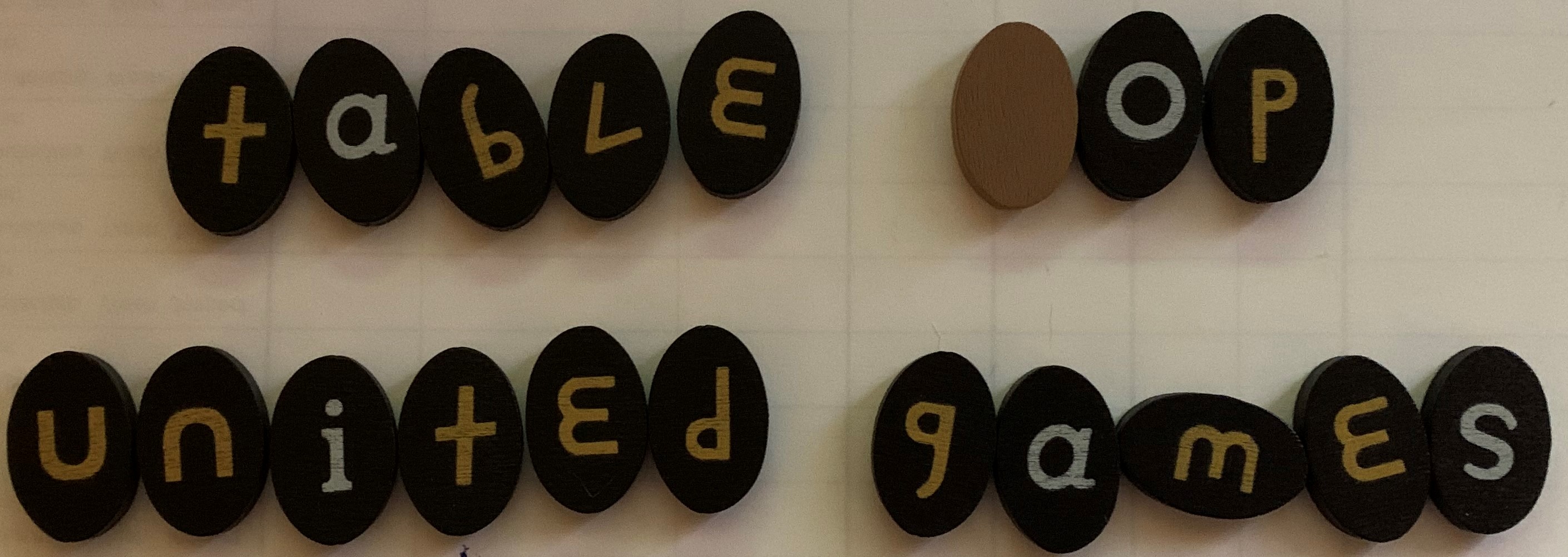
About the Author:
Daniel Yocom does geeky things at night because his day job won't let him. This dates back to the 1960s through games, books, movies, and stranger things better shared in small groups. He's written hundreds of articles about these topics for his own blog, other websites, and magazines after extensive research along with short stories. His research includes attending conventions, sharing on panels and presentations, and road-tripping with his wife. Join him at guildmastergaming.blogspot.com.
